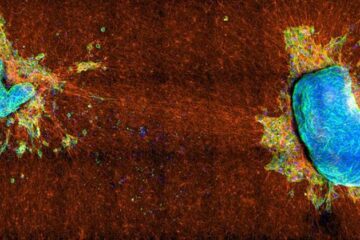Are Older Antidepressants Better for Depression in Parkinson’s Disease?

The new research is published in the December 17, 2008, online issue of Neurology®, the medical journal of the American Academy of Neurology. Depression affects up to 50 percent of people with Parkinson’s disease.
The study is the first to compare an older antidepressant that targets two receptors in the brain with a newer generation serotonin only-based drug and placebo. It is also the largest placebo-controlled study for Parkinson’s disease depression.
In the study, scientists gave 52 people diagnosed with Parkinson’s disease and depression either nortriptyline, a tricyclic antidepressant (TCA), paroxetine CR, a selective serotonin reuptake inhibitor (SSRI) or a placebo pill. Tricyclics affect both norepinephrine and serotonin, two different receptors in the brain. The people were tested for improvement of depression symptoms at two, four and eight weeks after starting treatment.
The study found that the people who took nortriptyline were nearly five times more likely to see improvement in depression symptoms when compared with the people who took paroxetine CR.
“I think that this study shows a number of important things. First, that people with Parkinson's disease can respond to antidepressants. This is important because depression in Parkinson’s disease is underrecognized, underappreciated and undertreated. Commonly, the attitude is, of course you’re depressed, you have a serious illness. This study shows that patients should have hope that they can be helped,” said study author Matthew Menza, MD, a Professor of Psychiatry and Neurology with Robert Wood Johnson Medical School in Piscataway, NJ. “Second, the study suggests that we may need to use medications that affect both serotonin and norepinephrine, not just serotonin, in the brain to be successful in treating depression related to Parkinson’s disease.”
Menza also says that in addition to the older antidepressant, nortriptyline, that was tested in the study, there are newer mediations that affect both serotonin and norepinephrinem, and these need to be tested.
Tricyclic antidepressants are one of the older classes of antidepressants and have been used since the 1950s. Tricyclics have an increased risk of overdose and death due to toxic effects on the heart and brain.
“People on a tricyclic antidepressant should have their dosages monitored closely by their doctor,” said Menza.
The study was supported by the National Institute for Neurological Disorders and Stroke (NINDS).
The American Academy of Neurology, an association of more than 21,000 neurologists and neuroscience professionals, is dedicated to improving patient care through education and research. A neurologist is a doctor with specialized training in diagnosing, treating and managing disorders of the brain and nervous system such as stroke, Alzheimer’s disease, epilepsy, Parkinson’s disease, and multiple sclerosis.
Media Contact
More Information:
http://www.aan.comAll latest news from the category: Health and Medicine
This subject area encompasses research and studies in the field of human medicine.
Among the wide-ranging list of topics covered here are anesthesiology, anatomy, surgery, human genetics, hygiene and environmental medicine, internal medicine, neurology, pharmacology, physiology, urology and dental medicine.
Newest articles

Decoding development: mRNA’s role in embryo formation
A new study at Hebrew University reveals insights into mRNA regulation during embryonic development. The study combines single-cell RNA-Seq and metabolic labeling in zebrafish embryos, distinguishing between newly-transcribed and pre-existing…

Study sheds light on cancer cell ‘tug-of-war’
How cancer cells tug against each other determines whether they can migrate elsewhere in the body. Understanding how cancerous cells spread from a primary tumor is important for any number…

Latest generation of self-dissolving stents
Magnesium implants support coronary arteries and keep them open. Constricted coronary arteries harbor dangers: Because the heart is not supplied with blood properly, this can lead to pain, cardiac arrhythmia,…





















